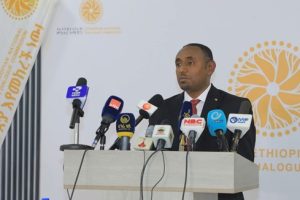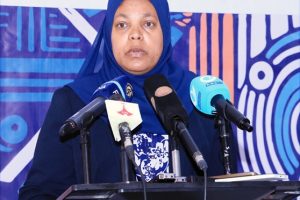
Ethiopia’s political integrity stands at a defining crossroads. The country now faces the urgent task of moving beyond the long-standing narrow corridor political order toward a more inclusive, unified future.
The ongoing National Dialogue process, initiated several years ago has re-emerged as a crucial mechanism to address historical grievances and guide the nation toward sustainable peace and governance.
Despite Ethiopia’s status as one of the world’s oldest states, its contemporary political reality tells a contrasting story. Persistent instability, ethnic tensions, and recurrent conflicts are undermining national cohesion and challenging the legitimacy of state structures. In this context, a genuinely inclusive National Dialogue is not a political luxury—it is a historical necessity.
A recent study conducted by the Ethiopian Civil Service University identifies the incomplete nation-building process as a primary driver of the country’s instability. According to the research, successive regimes have failed to finalize this process due to a mix of entrenched corruption, lack of transparency, foreign interference, and inherited divide-and-rule policies. These factors have produced a fragile governance system, susceptible to fragmentation and weakened law enforcement—particularly along ethnic and regional lines.
Admasu Teso (PhD), the author of the study, told The Ethiopian Herald that transforming Ethiopia’s fragmented political order into a more inclusive and consensual governance structure is an urgent national priority. “The political corridor must be widened to accommodate the full diversity of Ethiopia’s people, voices, and experiences,” he emphasized.
Recognizing the scope of these challenges, the Ethiopian government established the National Dialogue Commission (NDC), which is currently in the agenda collection phase. Preliminary consultations have been launched in various parts of the country, including the conflict-affected Amhara State. According to reports, the agenda collection process has seen encouraging levels of public engagement in some areas.
However, key gaps remain—most notably, the exclusion of armed groups currently in opposition to the federal government. “Without the participation of these actors, particularly those wielding influence in volatile states, the dialogue risks further entrenching divisions,” Admasu warned.
International examples offer valuable lessons. South Africa’s Convention for a Democratic South Africa (CODESA) in the 1990s and Colombia’s peace dialogues (2012–2016) are instructive models. In both cases, inclusivity, transparency, and the participation of all stakeholders—including former combatants—were foundational to their success. These processes were not limited to ending violence; they sought to redefine the social contract between the state and its citizens.
Admasu urges Ethiopia to take these examples seriously: “A National Dialogue that marginalizes armed opposition groups or fails to address contested historical narratives will only sow the seeds for future instability. It is imperative that all voices—regardless of political stance—are heard and considered.”
The NDC has acknowledged the importance of engaging with these groups and claims to have extended invitations. Yet, no significant breakthrough has been achieved, leaving a critical vacuum in the process.
Equally important is the role of media in shaping the dialogue. Admasu stressed that national discourse must be reflected not only in political forums but also through a media landscape that embodies Ethiopia’s pluralism. “Media must serve as a platform for inclusive storytelling—one that reflects the nation’s diversity rather than amplifying dominant narratives,” he said. A free, fair, and representative media can help foster national conversations that support trust-building and reconciliation.
Ultimately, Ethiopia’s political future hinges on the choice between continuing along a narrow and exclusionary path, or embracing an inclusive, forward-looking process of consensus-building. The mandate lies with the National Dialogue Commission, but the success of the process will depend on its ability to foster genuine inclusivity, institutional accountability, and national trust.
The stakes are high. If the National Dialogue can evolve into a truly inclusive platform—capable of bridging divides and reimagining Ethiopia’s political architecture—it could serve as a turning point in the country’s long quest for peace, unity, and democratic legitimacy.
BY YESUF ENDRIS
THE ETHIOPIAN HERALD SATURDAY 31 MAY 2025




